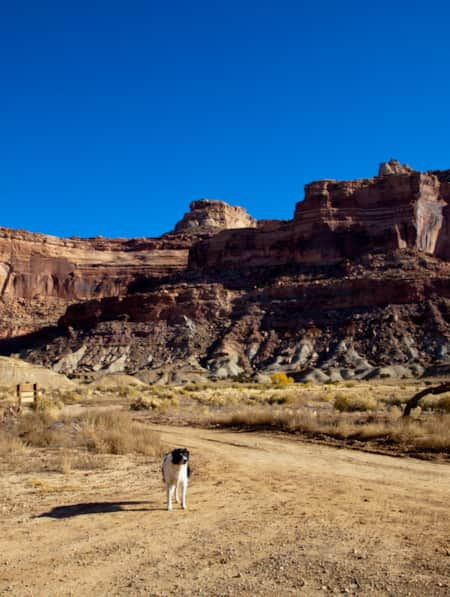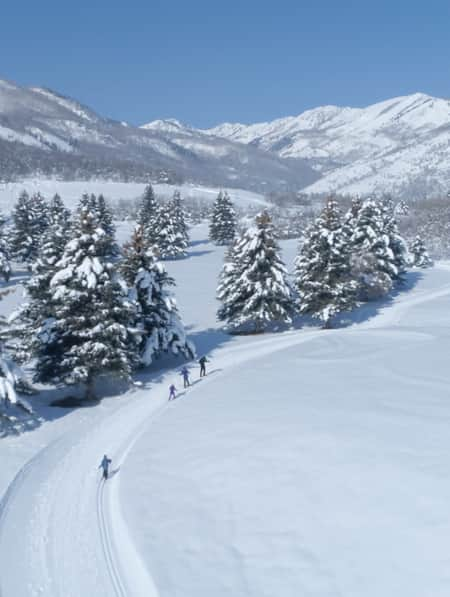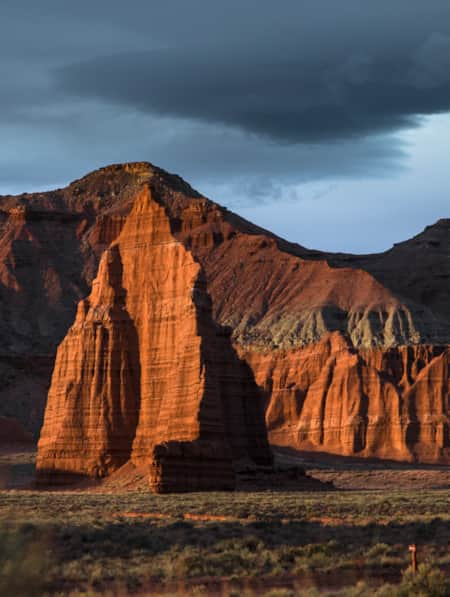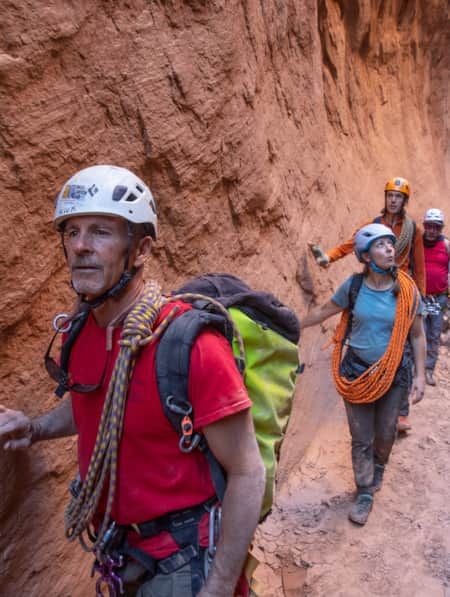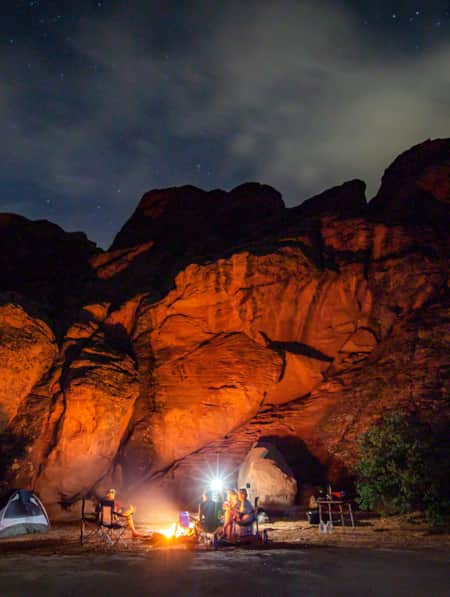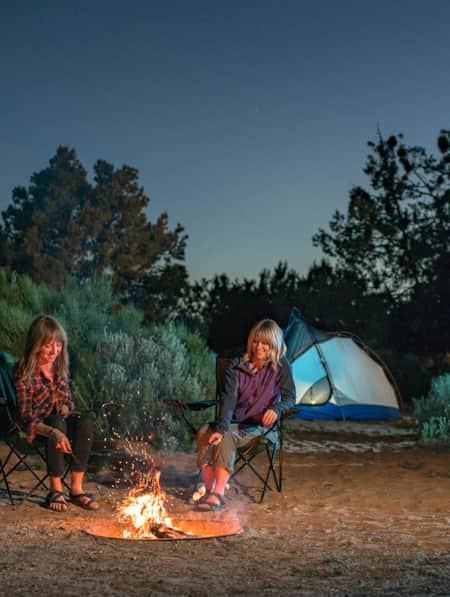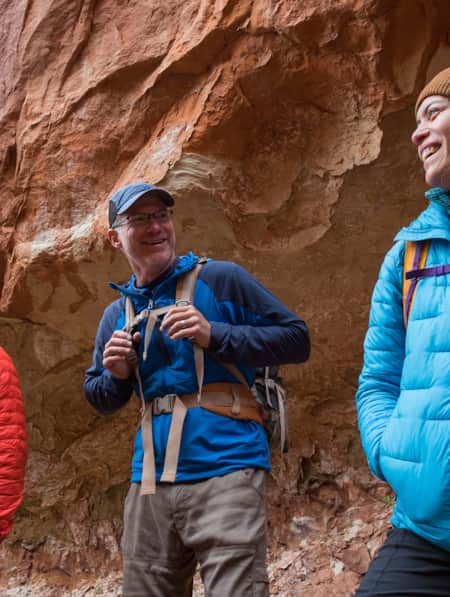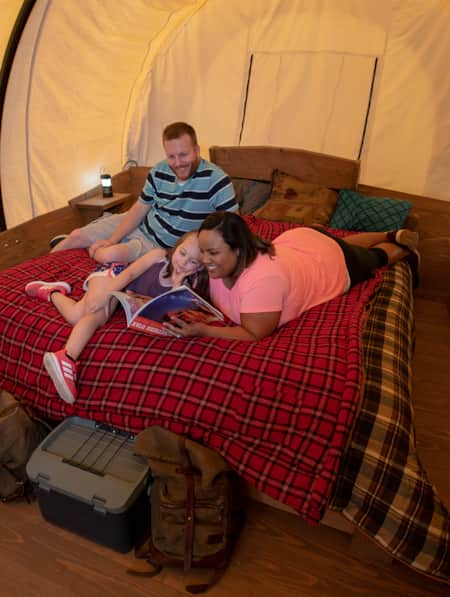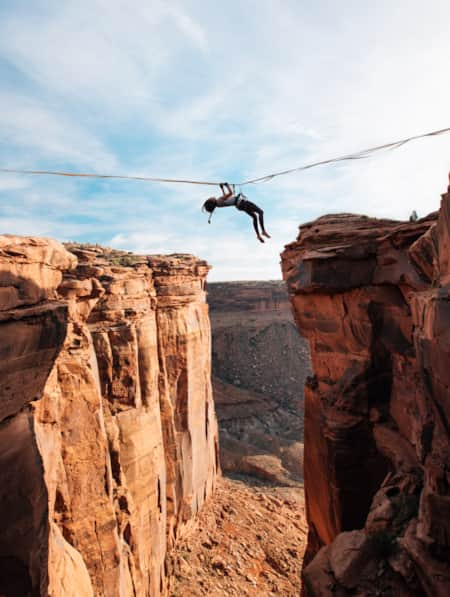Bryce Canyon Campgrounds
-
North Campground
North Campground, located just to the east of the Bryce Canyon Visitor Center, features 100 campsites. The campground is reservation-based during peak season, and first-come, first-served during the shoulder season. The campground has 4 loops: A, B, C and D. The A and B sections are for RV campers, while C and D are for tent camping. None of the sites have sewer, water or electrical hook-ups, but you will find a dump station at the southern end of the campground during the summer. Potable water is available, and you’ll find a camp store and laundry facilities close by as well. Discounts are available for seniors and other groups. For current rates or to make reservations, visit recreation.gov.
-
Sunset Campground
Located west of Sunset Point and about a mile and a half south of the Bryce Canyon Visitor Center, Sunset Campground features 99 sites available by reservation during the busy summer season from May through October. It features 3 loops: A, B and C, with A reserved for RVs and B and C set aside for tent campers. Like North Campground, no sewer, water or electrical hookups are available, but it also has a dumping station in the summer. During the less busy time in April and early May and toward the end of October, the campground moves to a first-come, first-served reservation system. The campground is closed from early November through mid-April. Reservations are available for summer camping up to 12 months in advance of your desired date. For current rates or to make reservations, visit recreation.gov.
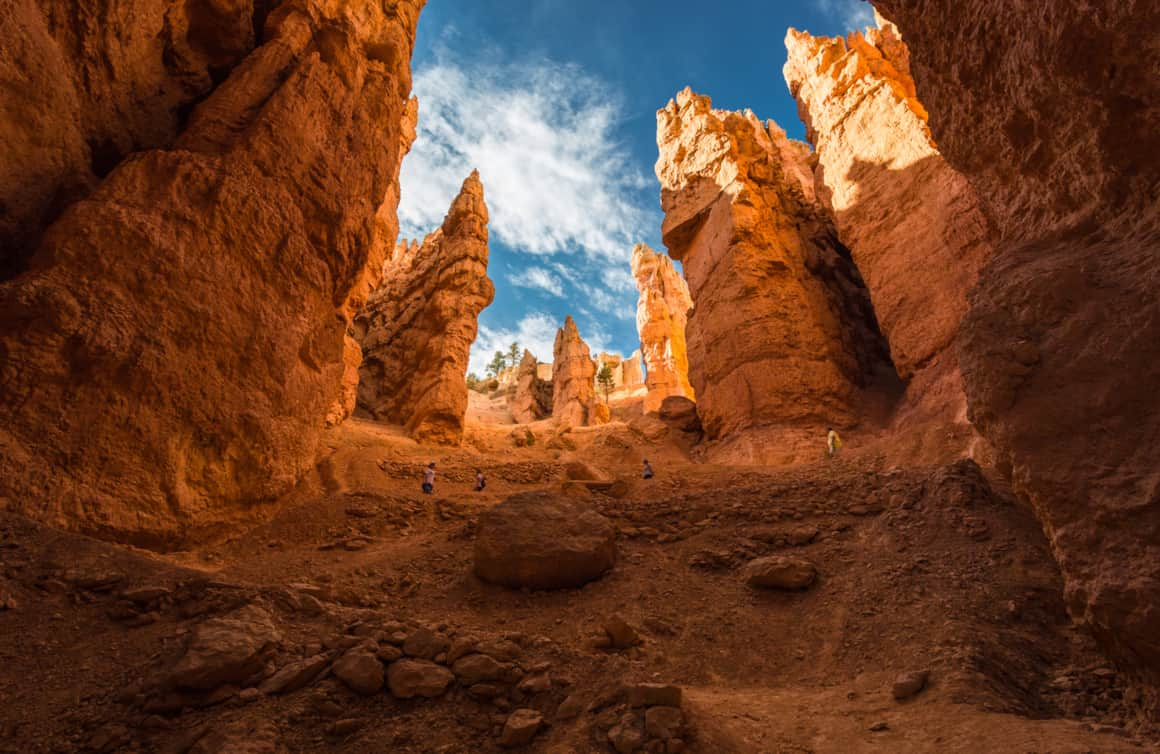
Beginning and ending at Sunset Point, the Navajo Loop Trail winds between narrow walls of limestone.
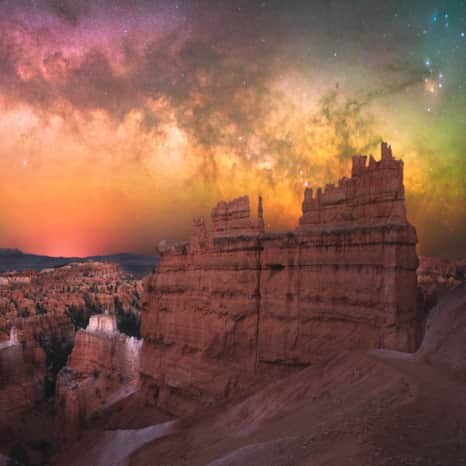
The Milky Way over Bryce Amphitheater — Bryce Canyon is a certified International Dark Sky Park.
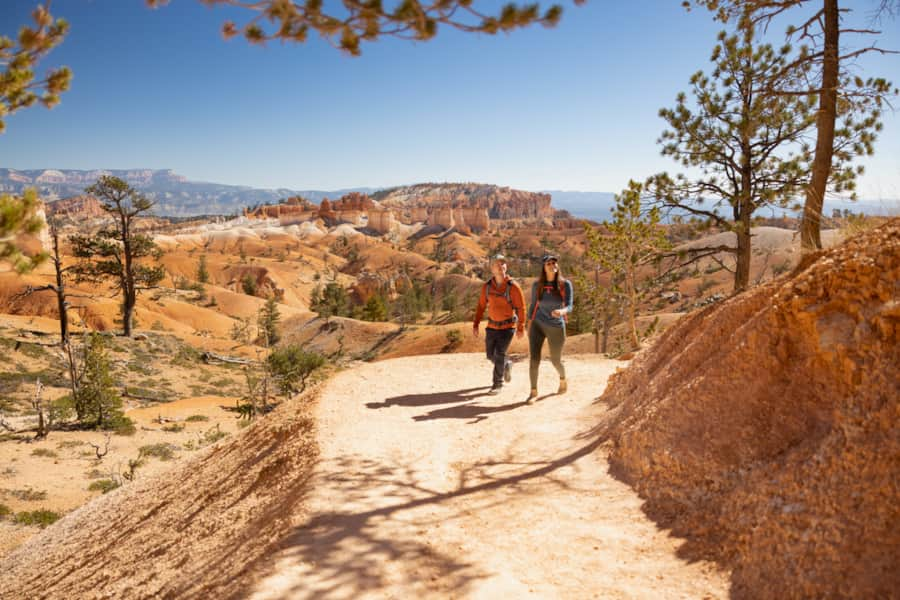
Bryce Canyon is an alpine forest with as many red rock hoodoos as trees.
"Over millions of years, water and wind carved Bryce Canyon into one of the country’s most unforgettable destinations."
Backcountry and BLM Camping
-
Dixie National Forest
In the nearby Dixie National Forest, the King Creek Campground features 37 campsites amid the ponderosa pine forest, about nine miles from Bryce Canyon. During the summer, drinking water and flush and vault toilets are available, but the water is turned off in the winter. For current nightly rates, visit the U.S. Forest service website.
-
Kodachrome Basin State Park
Kodachrome Basin State Park, about a 30-minute drive from Bryce Canyon National Park (and a beautiful destination of its own), features 52 camping spots.
-
Red Canyon
Red Canyon, just off of Scenic Byway 12, features a Bureau of Land Management (BLM) campground that offers 37 campsites and day-use area. Campsites are available on a first-come, first-served basis. For current nightly rates, visit the U.S. Forest service website.
-
Under the Rim Trail & Riggs Spring Loop Trail
The 22.9-mile Under the Rim Trail features seven backcountry sites along the route, while the 8.8-mile Riggs Spring Loop Trail offers three camping spots. A permit is required for any backcountry camping in the park, and you must obtain it at the visitor center before any overnight trips. For current rates, visit the National Park Service website.
RV Camping and Indoor Lodging
There are options for those who like a "roughing-it, so-close-to-the-park experience," but prefer the creature comforts of electricity, restrooms and bedding. And, of course, you have lots of options for accommodations in nearby Bryce Canyon City, Tropic, Cannonville and Henrieville.
Ruby's Inn RV Park & Campground
Ruby’s Inn RV Park and Campground is a mile from the park's entrance. It features 250 pull-through sites with electrical and water hookups.
Bryce Canyon Pines Campground
Bryce Canyon Pines Campground is eight miles from the park and features more than two dozen RV sites with full hookups. (Read: Wheeling It: An RV Primer for Utah Family Trips)
Bryce Canyon Lodge
Those who don’t want to rough it can consider staying at the Bryce Canyon Lodge, the only lodging within the national park.
